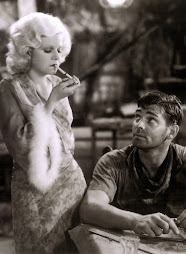
by the Beatles.
I could listen to this song forever. Of course, it's famous for being the beginning of that delicious pop medley from Abbey Road, the one that introduces the melodic sounds which will come to comprise the second half of the album. But even in isolation, it feels like it's own mini rock-pop epic, every bit as good as Stairway to Heaven or Bohemian Rhapsody or Free Bird. Am I overreaching? Yeah, okay, it's not as grandiose and ambitious as Stairway, and it doesn't have the operatic bigness of Rhapsody. And it certainly doesn't have the full-frontal sonic assault of ROCK that Free Bird's got going for it with it's barrage of dueling guitar licks and rock star lifestyle lyrics. But. You Never Give Me Your Money is the pop music answer to the rock music stadium anthem. It can be performed live, I think (and didn't Paul do it during one of his latest U.S. tours?). But on the album, its album-ness is so completely overwhelming and perfect that the London studio can't help feeling like its natural habitat.
And that's pop music: it's music meant to sound produced, to sound engineered, to be recorded and then pressed into vinyl and sold in shops. It's not the rawness of rock; it's the perfection of pop. You Never Give Me Your Money is on the album titled after the studio it was recorded in, and nothing could feel more appropriate. It's got all the sound of the Abbey Road studios, all the changing melodies and instrumentation that sum up the essence of what made the Beatles' studio recordings so ingenious and groundbreaking.
It's also a lot of nonsense. Supposedly it's about the group's business disputes, but that meaning gets lost after the first few lines, and the rest of the lyrics are so all-over-the-place that the overall effect is one of mood more so than meaning. And that mood is melancholy. The opening piano melody just drips with longing, with a resigned sadness that nevertheless grasps for warm contentment. "You never give me your money,/ you only give me your funny paper." Sure, the business table talk is there, but it seems more like a metaphor, something that can mean anything to anyone who yearns for one thing and ends up with something else. It's also a bit of a silly pun -- for what else is money but "funny paper" -- that gives an illusion of profundity even as it winks at us in jest.
When it switches to the second section, the sound of yearning gives way to a saloon hall riff on the piano and talk of "yellow lorries" and "outta college money spent," and it's all a bit happier, a bit jauntier, though we're not sure why. The speaker in the song is suddenly younger, he's on his way out into the world, there's money to be made, but then suddenly the yellow lorry has "nowhere to go," and meaning escapes us again, even as we can't escape the feeling that we're grasping at something and just missing it, longing for a thing that's never going to come. The lyrics don't "mean" anything in a direct sense, but the overall effect -- the sound of the nonsense words together with the melodies -- imparts a feeling, an emotional state, something beyond pure rationality, and it is that something which draws the human heart to music in the first place. The song has an illusion of substance, and at the same time the sugary emptiness of candy. It's seems powerful but remains pop-y without incongruity.
I'm reminded of my first response to the poetry of Gerard Manely Hopkins: I didn't necessarily understand all the meanings in "Pied Beauty" the first time around, but I understood its sound, its rhythms and sonic qualities, and I immediately loved it. Just to speak those words, those lines, aloud was enough to know the poem's beauty. There's a bit of that going on in the nonsense lyrics of You Never Give Me Your Money, as well. Just the sound of those words as they roll off the tongue and suddenly the mood is conjured. As the song fades out to the repetition of a nursery rhyme ("One, two, three, four, five, six, seven,/ All good children go to heaven"), the nonsense almost lifts up into a prayer, the melody and the words pulling us higher and higher into the clouds until all that's left to do is to fade out and up into who knows where.
The song is endlessly listenable because it's got those five different melodic sections that all flow seamlessly into one another so that when the song ends in a completely different place from where it started, it feels totally organic. It's the beginning of the Abbey Road medley, but the song itself is a medley, and yet it never feels pieced together or random. There's a sense that this is the overture to some Broadway musical, with all the melodies integrated into a complete and satisfying story, preparing its audience for what's to come. That one can listen to the song a hundred times and still feel surprised as each new melody is introduced, is a testament to the magic of the thing. "Oh that magic feeling,/ Nowhere to go." The song is a sonic journey; it uses some kind of magic to weave its nonsense into the listener, and while we're still listening, we're not sure where it has left to go. And then by the end, we're not sure where we've been. Once the song finishes, we realize that what we mistook for meaning has evaporated, and only melodies and a mood remain. But somehow, that is enough.












_01.jpg)







No comments:
Post a Comment